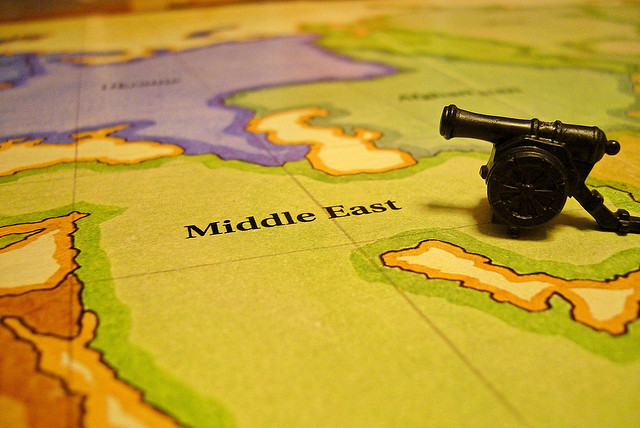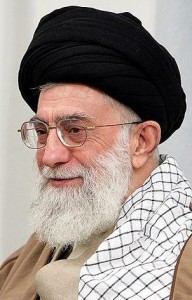 Stephen Coles/Flickr
Stephen Coles/Flickr
Iran and Saudi Arabia Headed for a Cold War Over a Heated One
The sudden and dramatic breakup of Saudi-Iranian relations has put the world on watch as the situation develops. The two countries were already engaged in an intensifying Middle Eastern Cold War before Sheikh Nimr al-Nimr, a prominent Shia cleric, was executed by Saudi officials on January 2. Now, as diplomatic ties between them are officially severed, war is inevitable. Correct?
The short answer: probably not.
Past the rhetoric, vitriol, and threats is the fact that neither Iran nor Saudi Arabia truly wants to engage in war. Their fight is and has always been political, in spite of sectarian divisions. It’s about hegemony, not demolishing the other country. The Middle East may be in turmoil, but strategic stability between these hegemons will win over any overt operations.
Both countries deeply understand this because there is too much at stake to escalate the situation to direct engagement. Neither Iran nor Saudi Arabia wants to test their military allies, since the Obama administration has done everything it can to keep mass numbers of American soldiers out of the Middle East.
In Saudi Arabia, King Salman bin Abdulaziz (left) has held the throne for only one year, and has shown his intent to assert the royal family’s power after his father King Abdullah’s death. However, the U.S.-Saudi relationship has deteriorated rapidly since King Salman ascended the throne, despite the close relationship previously held across several U.S. administrations. Even with heightened animosity towards Iran, relying on the Gulf Cooperation Council countries for military support would be unwise.
Avoiding direct engagement isn’t only for backroom discussions. Deputy Crown Prince Mohammed bin Salman, who is “widely thought to wield considerable power in the monarchy,” has gone on the record to say that “a war between Saudi Arabia and Iran is the beginning of a major catastrophe in the region … For sure we will not allow any such thing.”
Iran also cannot risk losing the benefits gained from the Joint Comprehensive Plan of Action. The power of the government and the Ayatollah Khamenei (bottom right) is directly tied to having open relations and economic channels again. The detained U.S. sailors were quickly released last week in part because the sanctions were so close to being lifted, and jeopardizing them would be too risky.
With the Arab League condemning Iran (only Lebanon and Syria predictably opposing) in the wake of the Saudi embassy attacks in Tehran, it has never been clearer that Iran is isolated and potentially vulnerable.
In addition, we’ve seen in Syria how the U.S. and other western powers have become entangled in a confusing web of allegiances. The U.S., for example, has taken different stances in the last five years about what its priorities are and how involved it is willing to become. The Obama administration’s decision last fall to send dozens of special operations troops to northern Syria marked a significant change in policy shift to avoid any U.S. presence in Syria. Officials emphasized that the forces will not engage in front-line combat, but the Pentagon this week announced a broad plan to take back Mosul and Raqqa from ISIS.
If there isn’t consistency on Syria, it won’t be any clearer with Iran and Saudi Arabia. They know this.
The only question left is how far both countries will take their proxy wars to perpetuate their ideals and hegemony.
Those countries work on a very different timeline than the United States. Every four or eight years a new American president and his administration comes in and changes priorities. However, King Abdullah ruled for ten years, and the House of Saud has controlled Saudi Arabia since the kingdom’s founding in 1932. Iran has regular elections, but the Guardian Council’s say in the final decision maintains a long-form view of which direction the politics will go.
Those countries can continue their proxy wars for as long as they can support them, and they will. No one could ever hope for a close relationship between Iran and Saudi Arabia. The more optimistic pragmatist can look forward to a stable but terse relationship between them.







